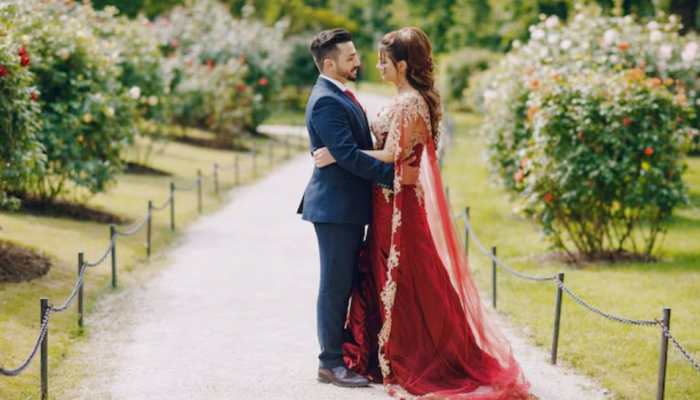Pakistan’s Daughter of Democracy
It was a chilly December evening in 1988 when I was first introduced to the phenomenon called Benazir Bhutto. She had just taken over the reigns of a politically confused and nervous Pakistan in her 35-year old fragile hands. I was then a school girl and together with my girlfriends cheered for the young, dynamic woman politician.
Trending Photos
)
Sheetal Rajput
It was a chilly December evening in 1988 when I was first introduced to the phenomenon called Benazir Bhutto. She had just taken over the reigns of a politically confused and nervous Pakistan in her 35-year old fragile hands. I was then a school girl and together with my girlfriends cheered for the young, dynamic woman politician.
We felt proud of her, very proud. Exactly nineteen years later, another cold December evening brought in its fold the shocking news of her assassination, a harsh truth which still refuses to sink in, even as pictures of the assassination site, of her last speech and her last moments were splashed all over the electronic media, awaken one to the crude reality.
She was fully aware of the enormous risks of her latest endeavour. The dangers of flirting with a fragile polity, of dealing with a dictatorship were not alien to her. She had seen the
tragic repercussions of this dangerous dalliance in her own family, the hanging of her politically charismatic father Zulfiqar Ali Bhutto by the then dictator General Zia –ul Haq, the suspected killing of her brother Shahnawaz by Pakistani secret agents in 1985 and then the cold murder of another brother Mir Murtaza in 1996, whose estranged relations with Benazir fuelled rumours of her and her husband Asif Ali Zardari’s involvement in the killing. And added to all the troubles this time on, was the ever looming threat of a terrorist attack, a preview of which she saw on the very first day of her arrival in Pakistan after eight long years of exile and political isolation.
But Benazir was made of tougher mettle and even as hardcore, dreaded jehadis swore to wipe her off the face of the Pakistani soil, she didn’t budge. She was determined rather to wipe terrorism off the face of her beloved nation and this reflected largely in her recent statements and speeches. Speeches that spoke fearlessly of fighting fundamentalist and extremist forces, of ridding her country and the entire region of the menace of terrorism.
Benazir’s recent statements also had a new warmth and empathy towards India and the Indian establishment, quite strangely for a politician whose approach towards her larger neighbour during her prime ministerial stints was not particularly amiable. And very recently, she had surprised the authorities on this side of the border by saying that she will extradite the most wanted Dawood Ibrahim to India, on coming to power in Pakistan.
Equally surprising was her promise of giving India access to terrorists like Masood Azhar and Hafiz Mohammad Sayeed. When the Indian National Security Advisor M K Narayanan’s disbelief at her promises and claims, she didn’t hide the fact that she was hurt and disappointed that India looked at her with suspicion.
Faced with allegations of corruption and incompetence in her earlier tenures, Benazir was determined to prove her credibility and worth as the most competent daughter of her land, at all costs. And the cost she did pay was too high…with her own life.
The suspense over Benazir Bhutto’s killers remains. Was it a mastermind of the Al Qaeda
terrorists, whom she had announced to deal with an iron fist on coming to power or was it the doing of the Talibani commander Baitullah Mehsood, who had vowed time and again to eliminate her? Was it her political opponents, in the ruling coalition as well as in the remaining section of the Zia ul Haq’s loyalists?
She was, after all, the most powerful, prominent Pakistani political leader, celebrated alike at home and abroad. Or was it indeed her foes in the establishment, politicians disgruntled with her deal and America-mediated political understanding with
Pervez Musharraf, some of whom she had also named last month in a letter to the President.
This list also included Pakistan’s current intelligence chief, Ejaz Ahmed. Was it another of the shrewd and scheming former General and now civilian President Pervez Musharraf’s dangerous plots? Bhutto in her dying declaration, published in the US, had claimed that she would hold Musharraf responsible in case of her death.
After all, despite a security alert and a fresh security warning on the day of her assassination, why wasn’t Benazir Bhutto given adequate protection? Why did the jammers fail when the blast took place? Why did the streets lights go off during the first assassination bid on her on October 18, when she returned to Pakistan? There are many questions. And an equal number of speculative answers.
And as the most liberal woman face of the Islamic world, Pakistan’s loudest and strongest voice of democracy rests in her final abode, silenced forever.
Today on the day when Benazir would have turned 55, the mystery of her death remains unsolved. And in the post Musharraf political era Pakistan seems increasingly directionless, obsessed with righting the wrongs of the past. It is sorely missing the one leader who could have smoothened the transition and given a new direction to Pakistan.
| Related Stories | |||
|
|||
Stay informed on all the latest news, real-time breaking news updates, and follow all the important headlines in india news and world News on Zee News.
Advertisement
Live Tv
Advertisement







)
)
)
)
)
)
)
)
)
)
